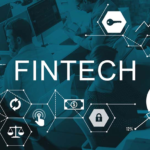In today’s rapidly evolving financial landscape, the rise of financial technology, or fintech, has revolutionized the way consumers manage their finances, offering a plethora of benefits but also presenting new challenges. This post delves into how these advancements are shaping consumer financial needs and the wider implications for the market.
Understanding the benefits and hurdles of fintech is crucial for consumers navigating this digital era, ensuring they can leverage these technologies to their advantage while staying vigilant against potential pitfalls.
Introduction to Consumer Financial Needs
The financial needs of today’s consumers are increasingly complex. From the desire for seamless transactions to the demand for tailored financial advice, the digital age has amplified the call for more personalized and efficient financial services. This is where fintech steps in, promising to bridge the gap between traditional financial services and the evolving needs of the consumer.
By leveraging technologies such as AI, blockchain, and data analytics, fintech companies are offering innovative solutions that aim to simplify financial procedures and make them more accessible.
However, as with any technological advancement, the shift towards digital finance comes with its set of challenges for consumers. Privacy concerns, security risks, and a digital divide are just a few of the hurdles facing users of these platforms.
Let’s explore in detail the advantages and the obstacles that come with adopting fintech solutions, keeping in mind the central focus on meeting consumer needs.
Unlocking the Advantages of Fintech for Consumers
The primary benefit of fintech for consumers lies in its ability to meet diverse financial needs with greater efficiency and customization. For example, mobile banking apps and online investment platforms provide convenience and accessibility, allowing individuals to manage their finances anytime and anywhere.
Moreover, fintech can offer more competitive rates and lower fees compared to traditional banking, thanks to its lower overhead costs. This aspect is particularly beneficial for users aiming to save money on transactions and financial management.
Additionally, fintech platforms often employ advanced technologies to offer personalized financial advice and insights, helping consumers make more informed decisions about their finances.
Confronting Fintech’s Challenges
Despite its benefits, the adoption of fintech is not without challenges. Security concerns top the list, as digital platforms can be vulnerable to cyberattacks, which pose significant risks to personal and financial information.
There’s also the issue of a digital divide. Not all consumers have the same level of access to or comfort with technology, potentially leaving some individuals behind as financial services move online.
Moreover, the regulatory landscape for fintech is still evolving, leading to uncertainties and inconsistencies that can affect consumers’ trust and willingness to engage with fintech services.
Understanding these challenges is crucial for consumers to navigate the fintech space safely and effectively.
Navigating the Fintech Landscape: Tips for Consumers
To fully benefit from fintech while mitigating risks, consumers should educate themselves on the security features of digital financial tools and adopt robust cybersecurity practices.
It’s also important to stay informed about the evolving regulatory environment and understand the protections available for users of fintech services.
Seeking out fintech solutions that prioritize user experience and offering constructive feedback can drive improvements and innovations that better meet consumer needs.
The Future of Financial Services
As fintech continues to evolve, it holds the potential to become even more integrated into our daily lives, offering solutions that are even more closely aligned with individual needs.
The ongoing collaboration between traditional financial institutions and fintech companies is likely to further enhance the range, quality, and accessibility of financial services available to consumers.
This future points towards an increasingly personalized and efficient financial landscape, where consumer needs are met with innovative and responsive solutions.
Conclusion
The intersection of technology and finance has ushered in a new era of financial services, tailored to meet the complex needs of today’s consumers. While fintech offers significant benefits in terms of efficiency, accessibility, and personalization, it also presents challenges that require attention and vigilance from consumers.
By staying informed, embracing secure practices, and actively engaging with the fintech ecosystem, consumers can navigate this dynamic landscape effectively, leveraging technological advancements to fulfill their financial needs.


